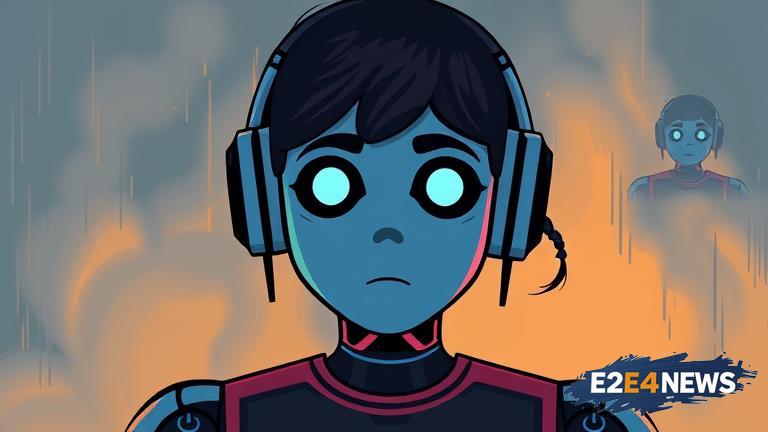The rise of chatbots as therapists for teenagers has become a growing concern among mental health professionals. According to recent trends, teens are seeking help from AI-powered chatbots to cope with their emotional struggles, rather than turning to human therapists. This shift has sparked alarm among experts, who warn that relying on chatbots for mental health support can have severe consequences. Chatbots, while convenient and accessible, lack the emotional intelligence and empathy that human therapists provide. They are programmed to respond to specific inputs, but they cannot truly understand the complexities of human emotions. Moreover, chatbots are not equipped to handle crisis situations, such as suicidal thoughts or severe mental health episodes. The use of chatbots as therapists also raises concerns about data privacy and security. Teens may be sharing sensitive information with these AI systems, which can be vulnerable to hacking and data breaches. Furthermore, chatbots may not be able to provide the same level of accountability and transparency as human therapists. The lack of regulation in the chatbot industry also means that there is no standard for the quality of care provided by these AI systems. In addition, the use of chatbots as therapists can perpetuate the stigma surrounding mental health issues. Teens may feel more comfortable seeking help from a chatbot, rather than a human therapist, due to the anonymity and convenience it provides. However, this can also prevent them from seeking the help they truly need. Human therapists can provide a level of emotional support and guidance that chatbots cannot match. They can help teens develop coping strategies, work through traumatic experiences, and build resilience. Chatbots, on the other hand, are limited to providing generic advice and support. The rise of chatbots as therapists also highlights the need for greater investment in mental health resources. Teens need access to qualified human therapists who can provide them with the support and guidance they need. The use of chatbots as therapists is a symptom of a larger problem – the lack of access to mental health resources. To address this issue, governments and healthcare systems must prioritize the development of mental health services that provide teens with access to qualified human therapists. This includes increasing funding for mental health programs, training more therapists, and reducing wait times for appointments. Ultimately, the use of chatbots as therapists is a concerning trend that highlights the need for greater awareness and investment in mental health resources. Teens deserve access to high-quality mental health support, and it is our responsibility to ensure that they receive it. The consequences of relying on chatbots for mental health support can be severe, and it is essential that we take action to address this issue. By prioritizing the development of mental health services and providing teens with access to qualified human therapists, we can help them build resilience, develop coping strategies, and thrive. The rise of chatbots as therapists is a wake-up call for all of us to take mental health seriously and to prioritize the well-being of our teens. It is time for us to take action and ensure that teens have access to the support and guidance they need to navigate the challenges of adolescence. The use of chatbots as therapists is not a substitute for human connection and emotional support. It is a temporary solution that can have long-term consequences. We must be aware of these consequences and take steps to address them. The future of mental health support for teens depends on it. By working together, we can create a system that provides teens with the support and guidance they need to thrive. This includes investing in mental health resources, training more therapists, and reducing stigma around mental health issues. Only then can we ensure that teens receive the high-quality mental health support they deserve.
